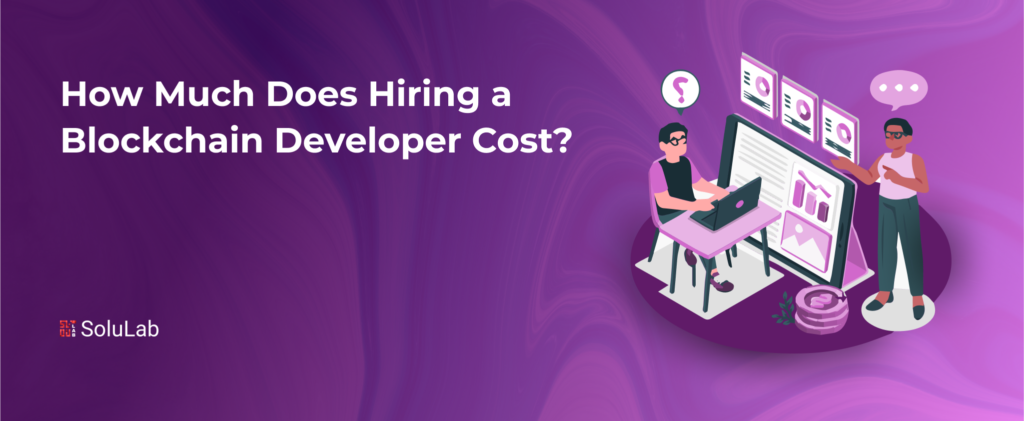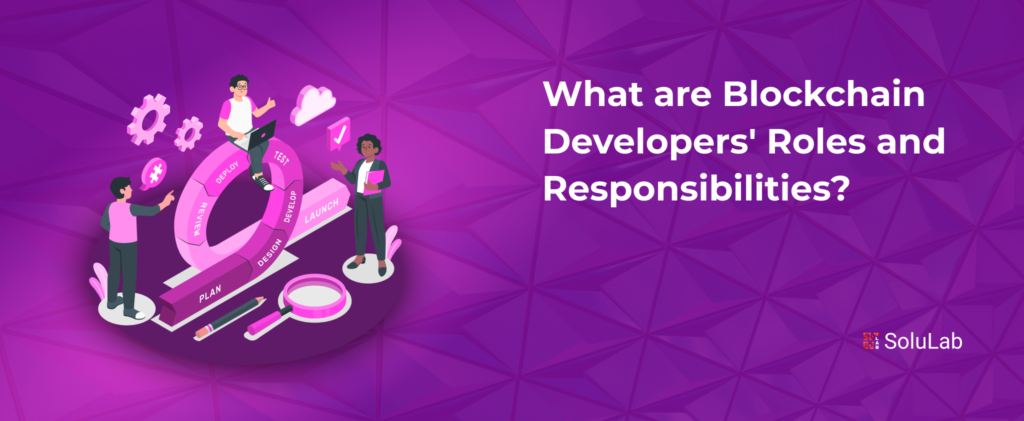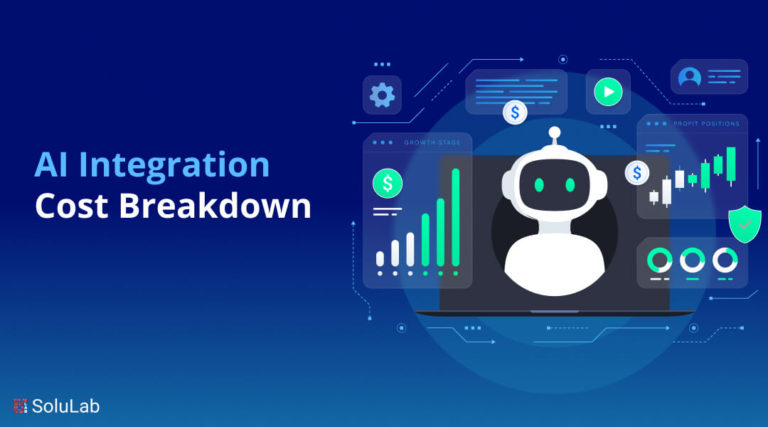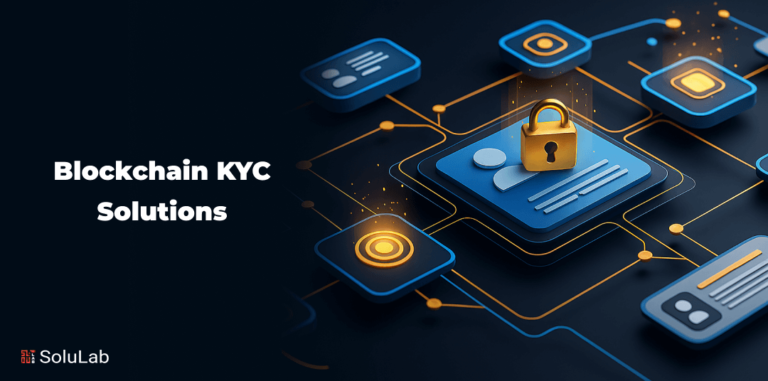
Silicon Valley’s worldwide heart of technical innovation is home to a thriving community of blockchain engineers. As blockchain technology transforms numerous sectors, the demand for qualified developers is increasing. Finding and recruiting the best blockchain developers in Silicon Valley, on the other hand, might be difficult.
If you want to construct cloud storage, implement smart contracts, improve supply chain communication, and so on as an enterprise, Blockchain is your solution. This digital ledger solution will hold enterprise-level transactional records across many databases linked by a network.
Recruiting blockchain developers in Silicon Valley is challenging since there is a lot of competition from a small pool of professionals. As a result of the market’s scarcity of engineers, the recruiting procedure will be costly and time-consuming. So, what’s the answer?
Is it possible to recruit blockchain developers in Silicon Valley in a cost-effective manner that does not require too much time and does not compromise on quality? This article includes in-depth insights and specific methods to assist you in navigating the recruiting process and assembling a top-tier blockchain development team.
Check Out Our Article: SoluLab Honored By GoodFirms as the Winner of the Trusted Choice Award 2023
What Factors Should You Consider When Choosing the Top Blockchain Developer?
Blockchain technology has transformed sectors from banking to supply chain management, and selecting the proper blockchain developer is critical to the success of any blockchain-based enterprise. With the increased demand for talented blockchain specialists, it is essential to evaluate several variables to guarantee you choose the right developer for your unique needs. Here are some important factors to consider while looking for the finest blockchain developer:
-
Technical expertise
Blockchain development necessitates a solid foundation in programming languages such as Solidity, C++, Java, or Python. Look for developers who understand blockchain ideas, smart contracts, consensus methods, and cryptography. Check their familiarity with relevant blockchain platforms like Ethereum, Hyperledger, or Corda and their capacity to design decentralized apps (dApps) and execute blockchain solutions.
-
Industry Experience
Consider hiring a developer with past expertise in your business or a related topic. Each sector has its own set of standards and regulatory concerns. A developer who knows these complexities will be better able to create and deploy blockchain solutions that successfully handle your unique difficulties. Request examples of their prior work or projects to analyze their expertise and ability.
-
Problem-Solving Skills
Blockchain technology frequently requires solving complicated challenges and resolving scalability, security, and performance issues. Look for developers with good analytical and problem-solving abilities. Examine their critical thinking skills, capacity to design novel ideas, and ability to optimize blockchain applications for efficiency and effectiveness. Consider presenting them with hypothetical scenarios to assess their problem-solving ability.
-
Collaboration and Communication
Multidisciplinary teams are frequently used in successful blockchain development initiatives. A developer must be able to collaborate with other experts, such as user experience/user interface designers, project managers, and business analysts. Look for strong communicators who can explain technical topics to non-technical stakeholders. Examine their capacity to collaborate and adapt to changing project needs.
-
Continuous Learning and Adaptability
The blockchain industry is constantly growing, with new platforms, tools, and frameworks appearing regularly. The greatest blockchain developers remain up to speed on the latest trends and breakthroughs in the technology. Inquire about their interest in learning, attending conferences or meetings, and contributing to the blockchain community. A developer who actively pursues and accepts change is more likely to provide cutting-edge solutions.
-
Reputation and References
Consider their reputation and references within the blockchain community while selecting possible applicants. Look for developers with a proven track record of successful projects and excellent client or company feedback. Request references and follow up with them to confirm their job quality, dependability, and professionalism.
Dedication and a true enthusiasm for the technology are required for blockchain development. Seek engineers excited about blockchain’s potential and power to alter industries. Developers passionate about their work are more likely to go the extra mile, keep up with the newest trends, and actively contribute to the success of your project.
-
Security Awareness
Security is of the utmost importance in blockchain development. Look for developers who value security, know typical vulnerabilities, and secure coding best practices. Examine their capacity to install strong security measures, do extensive testing, and maintain your blockchain technology’s confidentiality, integrity, and availability.
How to Hire a Blockchain Developer on a Low Budget?
Hiring a qualified blockchain developer is critical to the success of blockchain enterprises. However, the cost of employing blockchain engineers might be an issue for firms on a tight budget. Here are some tips to help you choose a blockchain developer on a tight budget:
1. Identify the Scope and Needs of Your Blockchain Project
Identify your blockchain project’s scope and outline your precise needs. This will allow you to properly convey your requirements to potential developers and minimize needless expenditures associated with confusing project scopes.
2. Examine Freelance Developers
Instead of working with huge development organizations, consider employing freelance blockchain developers. Freelancers frequently have lesser overhead costs and can provide affordable pricing. Platforms such as Upwork, Freelancer, and LinkedIn can assist you in locating and connecting with skilled freelance blockchain developers.
3. Expand Your Search to Include Remote Blockchain Developers
By broadening your search to include remote blockchain developers, you may have access to a worldwide talent pool. Developers from lower-cost-of-living locations may provide their services at reduced prices while maintaining their skills and knowledge. Use sites like Toptal, GitHub, or specialist blockchain forums to discover a hidden talent.
4. Evaluate Blockchain Development Courses
Consider hiring developers who have completed blockchain development courses or boot camps. These professionals may offer reduced fees as they begin their careers or shift into blockchain development. Examine their talents and practical experience earned during their training to verify they fulfill the needs of your project.
Read Our Blog: Top Blockchain Technology Companies in 2023
5. Engage with Blockchain Development Communities
Participate in blockchain development communities and forums where developers may discuss their work and initiatives. Networking and creating relationships within these networks help you connect with developers looking for part-time or economic jobs. Platforms like GitHub, Bitcointalk, and blockchain-specific subreddits might help you make important contacts.
6. Examine Open-Source efforts
Examine potential blockchain developers’ open-source efforts. Developers regularly contributing to blockchain projects and having a strong presence in the open-source community show their competence and dedication to the area. Consider these developers because they can provide more cost-effective solutions and important insights into your project.
7. Do Thorough Technical Evaluations
Before employing a blockchain developer, do extensive technical evaluations to analyze their abilities and expertise. This can assist you in identifying developers who have the essential skills while ensuring you receive the most value for your money. Assign coding tasks or ask for a review of previous work to evaluate their technical competence.
8. Consider Part-Time or Contract-Based Engagements
If your project does not need the hire of a full-time blockchain engineer, consider employing one on a part-time or contract basis. This arrangement enables you to tap into their knowledge for certain tasks or project stages while avoiding the expenditures associated with long-term employment.
9. Prioritise Flexibility and Adaptability
Look for blockchain engineers willing to work in flexible settings, such as remote work or flexible hours. Flexible developers may be more prepared to modify their charges to fit your financial limits. When interacting with potential blockchain developers, be upfront about your financial constraints. Discuss your pricing expectations for the project openly and see whether developers can give cost-effective options within your budget.
How Much Does Hiring a Blockchain Developer Cost?

Blockchain technology has gotten a lot of interest and acceptance in various businesses, which has increased the demand for competent blockchain developers. When considering hiring a blockchain developer, it is critical to understand the elements that determine the pricing of their services.
The cost of hiring a blockchain developer might vary depending on numerous factors, including:
-
Skill and Experience Level
A blockchain developer’s skill and experience level greatly influence their pricing. Developers with a thorough grasp of blockchain technology, skills in programming languages such as Solidity, and familiarity with blockchain platforms such as Ethereum or Hyperledger attract greater pay. More experienced developers are sometimes expensive but may provide significant insights and skills.
-
Project Intricacy
The intricacy of the project significantly impacts the cost of employing a blockchain developer. Projects that necessitate the creation of sophisticated smart contracts, complicated consensus algorithms, or advanced decentralized apps (dApps) are likely to require the knowledge of highly trained developers, resulting in increased expenses.
-
Timeframe for Development
The timeframe in which you expect the project to be finished might impact the cost. Urgent projects may necessitate allocating more resources or working longer hours to achieve the deadline, which may result in increased expenses. It is critical to discuss the project timeframe and ensure it fits with the developer’s availability and workload.
Read Also: 9 Tips To Hire Dedicated Developers For Your Project
-
Location and Market Rates
The developer’s geographical location might influence pricing. Developers in high-cost-of-living areas or where blockchain knowledge is in great demand frequently charge higher prices. For example, developers in North America or Western Europe often charge higher prices than those in other locations. However, developers from various places may bring different viewpoints and experiences.
-
Freelancer vs. Agency
The cost of employing a freelance blockchain developer vs. contracting an agency might vary. Although freelancers may provide affordable prices, they frequently operate autonomously, which means you will be responsible for project management and coordination. Conversely, Agencies offer a team-based approach with project managers and quality assurance, but their charges are often higher owing to added services and administrative costs.
-
Additional Services
Besides coding, some blockchain developers may provide consultancy, project management, or continuing maintenance. These extra services may increase the overall cost of your project but may add value to it. When assessing these supplementary services, remember your individual needs and budget limits.
What are Blockchain Developers’ Roles and Responsibilities?

Blockchain technology has ushered in a new secure and decentralized digital transaction era. Blockchain developers are essential in designing, implementing, and maintaining blockchain-based systems. Their duties include various activities ensuring blockchain initiatives’ seamless operation and success.
Here are some of the most important jobs and duties of blockchain developers:
-
Blockchain Architecture Design
Blockchain developers create the architecture of blockchain networks. Based on the project needs, they identify the best blockchain platform or architecture and the right consensus algorithms, smart contract languages, and data structures. They create the blockchain system’s framework, including network nodes, security features, and data storage techniques.
-
Smart Contract Development
Self-executing contracts with established rules and conditions are known as smart contracts. Blockchain engineers must be fluent in programming languages such as Solidity (for Ethereum) or Chaincode (for Hyperledger Fabric) to construct smart contracts. They build the code that automates contract execution, assuring transparency, immutability, and tamper resistance.
-
DApp Development
Blockchain developers create decentralized apps (dApps) that operate on blockchain platforms. They create front-end and back-end interfaces that communicate with the blockchain network. These applications may feature user authentication, transaction processing, data storage, and interaction with third-party systems. Blockchain engineers guarantee that dApps are seamlessly integrated with the underlying blockchain technology.
Read Our Blog Post: Top 10 Blockchain Platforms of 2023
-
Blockchain Integration
Blockchain integration refers to how blockchain developers integrate technologies into current systems and applications. They work with system administrators and IT teams to ensure the blockchain network integrates smoothly, including APIs, data feeds, and data synchronization. They may also create middleware or modify existing systems to interface with the blockchain network securely.
-
Security and Testing
Blockchain developers are responsible for implementing robust security measures to protect the blockchain network and its applications. They do thorough testing to find and remedy vulnerabilities, including unit testing, integration testing, and security audits. They ensure the blockchain system follows best practices for secure coding, encryption, and access management to avoid unauthorized access and data breaches.
-
Performance Optimization
The method through which blockchain developers increase the efficiency of blockchain networks and apps is known as a performance optimization. They identify bottlenecks, scalability challenges, and latency issues and implement solutions to enhance overall system performance. They can use splitting, caching, and load balancing to improve transaction throughput and reduce network congestion.
-
Blockchain Upgrading and Maintenance
Once a blockchain system is installed, developers are responsible for its upkeep and upgrades. They monitor the blockchain network, fix any performance issues or glitches, and make any required upgrades to keep it running smoothly. They remain current on the newest breakthroughs in blockchain technology and make necessary updates or protocol adjustments.
-
Collaboration and communication
Blockchain engineers work with cross-functional teams, including designers, project managers, and business analysts, to comprehend project requirements and transform them into technological solutions. They efficiently convey complicated technical ideas to non-technical stakeholders and advise on the viability and ramifications of blockchain technology in the project context.
Conclusion
When hiring the best blockchain developers in Silicon Valley, taking a strategic approach is crucial. Silicon Valley is well-known for its vibrant technology sector, which attracts top talent worldwide.
Numerous blockchain-related tech events, conferences, and meetings are held throughout Silicon Valley. Attend these events to network with industry leaders, meet possible prospects, and learn about the most recent trends and advances. Engaging with the Silicon Valley blockchain community can help you connect with qualified engineers.
When hiring the best blockchain developers in Silicon Valley, properly evaluate their technical abilities and competence. Conduct technical interviews, code exams, or a study of their previous projects to assess their knowledge of relevant programming languages, blockchain platforms, and smart contract creation. Consider working with technical specialists or consultants to help with the evaluation process.
FAQs
1. How can I hire the best blockchain developers in Silicon Valley?
Hiring the best blockchain developers in Silicon Valley can be challenging due to competition and scarcity. To overcome this, consider attending tech events, networking within the blockchain community, and conducting thorough evaluations of candidates’ technical abilities.
2. What factors should I consider when choosing a top blockchain developer?
When selecting a top blockchain developer, consider factors such as their technical expertise in programming languages and blockchain platforms, industry experience, problem-solving skills, collaboration and communication abilities, continuous learning and adaptability, reputation and references, and security awareness.
3. How can I hire a blockchain developer on a low budget?
Hiring a blockchain developer on a low budget can be achieved by identifying your project scope and needs, considering freelance or remote developers, exploring blockchain development courses, engaging with blockchain development communities, examining open-source efforts, conducting thorough technical evaluations, and considering part-time or contract-based engagements.
4. How much does hiring a blockchain developer cost?
The cost of hiring a blockchain developer depends on factors such as their skill and experience level, project complexity, timeframe for development, location and market rates, freelancer vs. agency, and additional services required. Evaluating these factors will help determine the pricing of their services.






